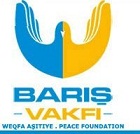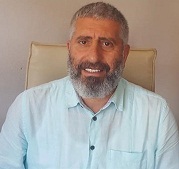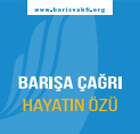For A Free, Equal and Democratic Future
PEACE FOUNDATION
Articles of Foundation
FOUNDING
Article 1 The founding members whose names and address are identified in the attached list established a foundation according to the Turkish Civil Code at the end of this year,
NAME OF THE FOUNDATION AND CENTER
Article 2 The name of the Foundation is the Peace Foundation for A Free, Equal and Democratic Future, abbreviated, when needed, as the Peace Foundation. The “Peace Foundation for a equal, free and democratic Future” will hereunder be referred to as “the Foundation”.
The Foundation’s central office is in Istanbul. The Foundation, as it deems necessary to achieve its objectives by General Assembly decision, may open branches or agencies and appoint a provincial representative at home and abroad, by requirements of the law.
The address of the Foundation is Kuloglu Mah. Turnacıbaşı sokak. Fikret Tuner Apt. No: 39/2 Beyoğlu / Istanbul. The address can be changed by the Foundation’s Board of Directors.
PURPOSE OF THE FOUNDATION
Article 3 The purpose of the Foundation is to protect the right to life and other basic rights and freedoms secured by international conventions, Constitution and law, particularly the Universal Declaration for Human Rights and establish social justice and democracy for indiscriminately everyone in Turkey by universal human rights principles and ensuring a lasting peace that is the basic condition for all these. In this context, the foundation contributes to building the peace in fair, equitable and democratic way; development of culture of peace and reconciliation in the community; the strengthening of the social foundation for coexisting.
REALIZING THE OBJECTIVE
Article 4 To achieve its purpose, the Foundation:
a) Develops stimulating, encouraging and supportive proposals for establishing the peace. It works to ensure that the public obtains direct and accurate information and it supports existing work in this context. For this purpose it contributes to work towards restorative justice.
b) Carries out studies for the development of peace vernacular in society,
c) Carries out academic studies for the removal of all obstacles to the development of confidence among citizens to take place in the social sphere with equal rights and responsibilities; organizes stimulating and informative events in the community,
d) Creates social and cultural grounds in which people from different walks of life can contribute to peace; organizes panels, workshops, conferences and academic events to strengthen the demand for peace and contributes to the formation of a libertarian democratic political environment,
e) Conducts studies for forming and applying democratic participation programs to ensure and guarantee permanent peace, by which everyone can participate public and political life,
f) Popularizes the Foundation’s objectives by publishing periodical and non-periodical publications. Publishes books. Translates and publishes books from foreign languages. May set up web pages and publish on line. Exploits the possibilities of social media effectively. All kinds of technical information and its ways and methods can be used for the purposes of the Foundation.
g) Sets up awards to promote and encourage peace workers. Awards may only have nonmaterial sentimental value.
h) Planning and carrying out the foundation’s work for positive discrimination for women, in the election of organs and at all levels of assignment and conducting studies reinforcing positive discrimination in society is fundamental.
ITS POSSESSION AND PROCEDURE AREA
Article 5 For to achieve its objective providing that within its legal limitations, unrestricted amount and value of movable or immovable property and / or other testamentary disposition and / or to acquire, use by lease, by purchase; to sell, transfer, assign, dispose the acquired; taking, spending income, profits, to use immovable properties in assets and / or income, allocate to investments; managing donations, movable and immovable property and cash values through legacy or otherwise acquired provided that to be directed to the purpose of the Foundation; to buy and sell, deposit, receive income, spend all papers and documents with economic value, all kinds of real estates, the dividend shares and representing further shares, making agreements with foreign and local foundations, to receive funds apart from public institutions and organizations; to provide this assistance making preliminary discussions and agreements, to build partnerships, to join existing partnerships, to receive income and dividends; to use them for investments, to obtain, use the same rights other than ownership, to take all kinds of movable and immovable collateral including deposit, set and resolve them; getting credit and loans for serving the foundation thus depositing movable and immovable property, creating mortgage on these properties; for the purpose of the foundation establishing production and service units, leasing, managing, forming partnership for these units, contributing to the existing business; briefly to carrying out all kinds of useful, necessary, mandatory legal initiatives to the purpose of the foundation; making all kinds of savings, transactions and contracts either directly or through authorized representatives authorized as stated in Article 48 of the Turkish Civil Code. Foundations cannot use these powers and revenues in activities banned by the Turkish Civil Code.
ASSETS
Article 6 The first asset of the foundation which is a total of 85.000.00 TL (eighty-five thousand Turkish Liras) in cash was endowed by the founders in the attached list. These assets, following the establishment of the foundation, can be increased with additional assets.
The foundation can extend its initial assets with donations given by real and legal persons such as all movable and immovable property, cash, commercial bills, bills of exchange, stock shares, similar assets and all kinds of goods and rights;
To accomplish its purpose, the Foundation can use all goods and rights and movable and immovable property allocated or loaned permanently or temporarily by institutions and persons in its assets in relation to services and activities shown in the realm of its authority and activity and in the format specified in disposition and proceeding field.
REVENUES OF THE FOUNDATION
Article 7 The Foundation’s revenues consist of the following:
– Revenue arising from the foundation assets, profits and interests;
– Voluntary donations from members of the foundation;
– Incomes to be provided from the fee to be charged for all the activities and services specified in the foundation’s activity, authority, procedure and disposal;
– All donations, will of testaments, allocations will be made by real and national and international legal persons; and donations by other than public agencies and organizations;
– Incomes derived from all kinds of social organizations like balls, concerts, fashion shows and bazaars organized by the Foundation,
– Incomes derived from domestic and overseas institutions practice with similar purposes or from conditional financial support for specifically designed study within this framework or all kinds of similar income.
The Foundation’s revenues are used to achieve the objectives of the Foundation except that income obtained for to be spent for a particular purpose will be spent for that purpose. Instant, administrative and other expenses cannot exceed 25 percent of the Foundation’s income.
FOUNDATION MEMBERS
Article 8 The foundation has founding members and participating members. Only real persons can be members of the foundation.
Real persons whose names in the founders’ list in the foundation voucher section are founding members.
Applicants who are embracing the objectives of the foundation and applies in writing and recommended by the Board of Directors and whose membership are found suitable by the General Assembly can be participating members by donating the amount which is not less than the amount to be determined by the General Assembly.
When for any reason a founder or participating member requests resignation from membership in writing to the Foundation Board of Directors, the Board of Directors are obliged to fulfill the requirements at its first meeting.
Participating members’ membership will continue for life. The number of participating members to be admitted in each regular General Assembly may not exceed 20% of the number of founding members.
ORGANS OF THE FOUNDATION
Article 9 The organs of the Foundation are as follows:
– General Assembly,
– Board of Directors,
– Audit Committee.
GENERAL ASSEMBLY
Article 10 The General Assembly is composed of the founding members and participating members. In case of any positions becoming vacant as a result of death, resignation or any other reason, there will be an election held by the executive board’s proposal and the decision of the General Assembly.
FUNCTIONS AND DUTIES OF THE GENERAL ASSEMBLY
Article 11 The General Assembly is the highest decision-making body of the Foundation. It
a) Selects full members and associate members of the Executive Board and Supervisory Board.
b) Decides on the accession of new participants proposed by the Board of Directors;
c) Examines previous working reports and the balance sheet of the Board of Directors and the report of the Supervisory Board. It finalizes whether the Board of Directors and the Supervisory Board are acquitted or not;
d) Examines and concludes the annual draft budget prepared by the Executive Board;
e) Determines the amount of the minimum donation for participating membership proposed by the Board of Directors;
f) Determines the guiding principles of the work program for the next year;
g) Finalizes the regulations whether it is appropriate or not, arranged by the Board of Directors in connection with the staff who will be employed in the foundation;
h) Authorizes the Board of Directors for all operational issues such as establishing facilities, partnerships, leasing, selling, pledging and mortgaging and acquisition of movable and immovable properties in accordance with the Foundation’s objectives;
i) Finalizes the amendments to the articles of foundation by negotiating;
j) May decide on standing rules, guide lines and other legal instruments regarding internal affairs of the Foundation;
k) Decides to open branches and representative offices at home or abroad within the scope of the relevant legislation and determines the provincial representatives.
l) Takes any decision necessary for the protection and realization of the objectives of the foundation’s assets.
THE GENERAL ASSEMBLY MEETING AND DECISION-MAKING PROCESSES
Article 12 The General Assembly meets once every two years in January on the invitation of the Board of Directors by a majority of the founding and participating members.
The General Assembly may hold an emergency meeting upon invitation of the Board of Directors or the Supervisory Board or at least 25% of all members.
The General Assembly convenes with a majority of all members. If a majority is not achieved in the first meeting, a second meeting will be held regardless after at least 15 days.
The Board of Directors delivers the meeting place, date, agenda and the balance sheet, income and expenditure account and the Supervisory Board report to its members through any means of communication it deems appropriate at least 15 days before the meeting.
The General Assembly chooses two secretaries and a president to conduct the meeting. The chairman and members of the Executive and Supervisory Board may not be elected to conduct the meeting.
Each member has one vote. Members unable to attend the meeting may appoint other members as deputy. A member cannot receive more than one mandate at the General Assembly. The chairman and members of Executive and Supervisory Board cannot represent any other member at the General Assembly.
The General Meeting is governed by the agenda based on the principles of the call. In the Ordinary Meeting of the General Assembly to install additional clause is possible with two thirds of the participants’ vote except the change of the bill and organs of the foundation and the issues which will weight down obligations and responsibilities to the foundation. Extraordinary General Assembly convenes only to discuss the issues on the agenda.
Decisions of the General Assembly are taken by majority of members attending the meeting. For any amendments to the Bill of Foundations it is obligatory that one more than half of all members present in the meeting and their 2/3 should vote in favor of change. The Board governing the council enter the decisions into the General Assembly books, signs the report and the book.
BOARD OF DIRECTORS
Article 13 The Board of Directors consists of nine full, four associate members and is elected by the General Assembly from the members of the Foundation. The Board of Directors elects a Chairman, a General Secretary and a Treasurer at its first meeting. The Chairman of the Board is also the president of the foundation.
The Board of Directors’ term of office is two years. A member whose term of office is ended can be re-elected to the Board. In case of vacancies on the Board of Directors, associate members are invited to the Board according to vote order.
During the first six years, following the establishment of the Chairman of the Board and the General Secretary will be chosen among the founding members. Directors in parties, trade unions, professional organizations and local governments and MPs cannot take part in the Foundation Board of Directors, their membership automatically ceases if they win these titles after becoming a member.
Board members meet with the majority of the total number. Decisions are taken by majority vote of the Board members participating in the meeting; it is signed by writing in decision book. Members oppose the decision state their opinion in the book and sign.
The Board of Directors meets at least once a month. Apart from that President gathers up the Board by three days’ notice when it deems necessary. Three full members of the Board may request a meeting with the Board of Directors by writing to the Chairman
The member who fails to attend four successive stated monthly meetings his/her membership will be ended, first associate member succeeds him/her.
Agreement is essential in the Board meetings. However, two thirds of the board members must be present at the meeting.
DUTIES, AUTHORITIES AND RESPONSIBILITIES OF THE BOARD OF DIRECTORS
Article 14 The Board of Directors’ duties, authorities and responsibilities are as follows:
a) Implementing decisions of General Assembly
b) Managing the movable and immovable properties of the Foundation, taking measures towards increasing its assets and income and in case of necessity changing its address;
c) Preparing annual balance sheet and a draft budget, overseeing the implementation of the budget;
d) Determining the payment methods for all kinds of spending within the limits set by General Assembly, and deciding the fee or any payment will be made at all in case any expertise-based services are needed from a person who works for the foundation;
e) Representing the foundation;
f) Any regulations governing the functioning of the Foundation and establishing the rules that apply;
g) Assigning foundation personnel, temporary workers; determining their duties, authorities and responsibilities, fees, personal and social rights and signing contracts;
h) By carrying the function of the foundation’s executive organ disposition and proceeding resulting from authorization except that of the General Assembly;
i) Offering suggestions about participating members subject to approval of the General Assembly;
j) Determining persons will be equipped with signature authority between individuals who work at the Foundation and the boundaries of their authorities;
k) Preparing the draft amendments to be made to Articles of Foundation and submitting it to the General Assembly;
l) Realize every effort is envisaged to achieve the foundation’s aim in the framework of Articles of Foundation’s “activity and authorization field” and “proceeding and disposition field”;
m) The Board of Directors is the body in charge of the foundation before the authorized inspectorate.
n) Creating Advisory Committee and the Academic Council, identify members of these committee, invite the members of the Advisory Committee to the Board meeting when its needed.
REPRESENTATION AND BINDING
Article 15 The Board of Directors represents the Foundation. The Board of Directors is represented respectively by the Chairman of the Board or the General Secretary or other Board members elected by the Board of Directors.
In case of putting the Foundation in the process of undertaking debts, claims, acquisition and other liabilities and at all kinds of document and contracts in this nature should be signed by at least two of them between Chairman of the Foundation, General Secretary and Treasurer; in the absence of these two permanent members joint signature authorized by Board of Directors are required for performing these tasks. Those who have right to sign and their authorization and rate determine by the Board of Directors.
SUPERVISORY BOARD AND DUTIES
Article 16 Three auditors elected by the General Assembly form the Supervisory Board. The General Assembly also selects three substitute auditors. Elected auditors select chairman among themselves. Auditors whose term of office is ended can be re-elected. If any original auditors leave, the first alternate auditor takes his or her place.
Supervisory Board members are elected from among the members of the General Assembly. The task is voluntary, but mandatory lodging and travel expenses are paid by the Board of Directors.
The Supervisory Board supervises all procedure related to the Foundation’s administration and operation; examine the records and documents; submits the report prepared according to the accounting period to the General Assembly. Accounting period is the calendar year. Books are kept based on the balance sheet.
The auditors examine books and documents and revenue and expenditure of the foundation either together or by appointing one among them every six months; when it deems necessary warn the Board with a report; therefore may call an extraordinary meeting of the General Assembly.
AMENDING THE DEED
Article 17 Any amendments to the Deed of Foundation can be made by the written proposal of at least one fifth (1/5) of the board of directors or the general assembly members and by the approval of at least two-thirds of General Assembly members (2/3) and by court decision.
TERMINATION AND LIQUIDATION OF THE FOUNDATION
Article 18 The Board of Directors may call the General Assembly for an extraordinary meeting to decide the liquidation and dissolution of the Foundation’s properties in the event that realizations of the objectives of the Foundation are disenabled legally or practically. The majority of the General Assembly members are required to attend this meeting, the decision for dissolution and liquidation needs to be accepted by the two third of the existing members. If the majority is unobtainable, termination is possible with the approval of two-thirds of the total number of members in General Assembly meeting that will be held earliest in two weeks and by the court decision.
Transferring the assets of the Foundation to another foundation with the same or similar purposes can be settled.
In case of dissolution of the Foundation, processes are executed by a triple liquidation committee selected at the General Assembly
ADVISORY BOARD
Article 19 The Board of Directors creates an Advisory Board for voluntary mentoring and contributing to foundation work. Advisory Board members do not need to be founding or participating member. Advisory Board composed of experienced experts for peace work. Advisory Board cannot exceed seven people. Advisory Board members can attend in the Board of Directors meetings if they are needed or invited by the Board.
ACADEMIC COMMITTEE
Article 20 The Board of Directors creates an Academic Committee consisting of nine faculty members working in different areas and contribute to its scientific and academic work. Same persons can be assigned again at the end of the same period for the Committee created for a period. The Board of Directors elects a chairman in itself to represent the Committee.
DAILY ALLOWANCE
Article 21 Services of those who are assigned in the Foundation organs are voluntary. But the expenses incurred by the activities of the Foundation can be covered by the foundation and non-public officers can also be paid for their expertise. Payment and the amount of the fee paid are determined by the Board of Directors.
VARIOUS DELIVERANCE
Article 22 The issues is not ensured and determined within the framework of Article of the Foundation, the current issues of law and related legal rules applies.
TRANSITIONAL PROVISIONS
Provisional Article 1) The Foundation acquires its first General Assembly over the next six months after an approval of the Articles of the Foundation and acquiring legal personality status.
Provisional Article 2) Founding members whose names and addresses are indicated below will serve as Temporary Board of Directors until the first meeting of the General Assembly:
- 1. Ayşe Soysal Öğretim
- 2. Ümit Aktaş
- 3. Hakan Temel Tahmaz Yazar
- 4. Yakup Levent Korkut
- 5. Sevgi İnce
- 6. Tatyos Bebek
- 7. Turan Sarıtemur
- 8. Evren Balta
- 9. Ayşe Bingöl Demir
Provisional Article 3) Founding members whose names and addresses are indicated below will serve as the Preliminary Supervisory Board until the first meeting of the General Assembly:
- 1. Ekrem Murat Çelikkan
- 2. Meral Saklayan:
- 3. İsak Karakaş
Provisional Article 4) Conducting all official procedures related to the establishment of the foundation, making necessary adjustments and changes in the Articles of Foundations, to sign the certificates representing the founders, applying to the court for the registration of the foundation, carrying out transactions before the General Directorate for Foundation, fulfilling the requirements of all kinds of founding necessities including receiving tax number and opening the bank account on behalf of the Foundation Hakan Temel Tahmaz with 2048660466 ID Number and Lawyer Ayse Demir Bingöl from Istanbul Bar Association 18049876654 ID Number are authorized to conduct together as well as single 27.03.2015
FOUNDERS
1. Ayşe Aydoğan
2. Ayşe Soysal
3. Azime Bilgin
4. Bekir Berat Özipek
5. Cuma Çiçek
6. Ekrem Bilek
7. Evren Balta
8. Fatih Polat
9. Fırat Anlı
10. Hakan Temel Tahmaz
11. Hüsnü Öndül
12. Yakup Levent Korkut
13. Ekrem Murat
14. Meral Saklayan
15. Nurcan Kaya
16. Mehmet Osman Kavala
17. Özgür Mumcu
18. Suat Yalçın
19. Tatyos Bebek
20. Turan Sarıtemur
21. Ümit Aktaş
22. Yiğit Ali Ekmekçi
23. İsak Karakaş
24. Ayşe Betül Çelik
25. Nil Mutluer Zeytinoğlu
26. Sevgi İnce
27. Nusret Doğruak
28. Yasemin İnceoğlu
29. İlkay Yıldırım Açıkgöz
30. Fatma Ünsal
31. Turgut Tarhanlı
32. Pınar Oğünç
33. Ayşe Bingöl Demir
34. Mehmet Karlı
The Board of Directors:
Prof. Ayşe Soysal: President
Hakan Temel Tahmaz: General Secretary
Sevgi İnce: Accountant
Ayşe Bingöl Demir
Yakup Levent Korkut: Board Member
Evren Balta: Board Member
Turan Sarıtemur: Board Member
Ümit Aktaş: Board Member
Tatyos Bebek: Board Member
Supervisory Board
Murat Çelikkan
Meral Saklıyan
İshak Karakaş



 Peace is the most essential value that human being reached so far. The nature and the human being have to be together in order to survive. Peace is the essence of life. The history of humanity arrived today through peaces, not wars.
Peace is the most essential value that human being reached so far. The nature and the human being have to be together in order to survive. Peace is the essence of life. The history of humanity arrived today through peaces, not wars.